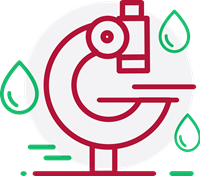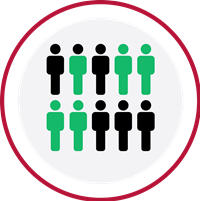
Funded Research
Our annual funding round is designed to support bright young researchers, as well as established institutions, as they strive to make the kind of life-changing breakthrough our diabetes community is hoping for.
Our first research award was made in 1999 for a small equipment grant and since that time, we have committed more than £12 million to diabetes research in the UK and as part of the International Diabetes Wellness Network, around the world.
To read more about our research strategy, click here.
2001

Sutherland-Earl Clinical Fellowship
Cerebral Insulin Resistance - a cause of dementia in diabetes?
Recipient: Dr Karen Anthony
Institution: Guy's, King's & St Thomas' School of Medicine
City: London
Amount: £120,000
- Description - click here to read
-
The purpose of Dr Anthony's (King's College Hospital) project was to examine brain insulin sensitivity in people with whole body insulin resistance (patients with Type 2 diabetes and their insulin resistant relatives). In her final report she summarised by concluding that, when basal insulin is replaced, brain glucose uptake rises to a lesser extent in people with insulin resistance than in insulin sensitive volunteers.
2001

Studentship
Identification of novel non-MHC susceptibility loci for type 1 diabetes
Recipient: Miss Joanne Collins
Institution: University of Birmingham
City: Birmingham
Amount: £39,000
- Description - click here to read
-
In patients with Type 1 diabetes, the persons own immune system has become confused and mistakenly recognised the insulin producing cells as being "foreign", just like a bacteria or virus and destroyed them. The consequence is that the pancreatic cells producing insulin are destroyed and the patient requires insulin injections, usually for the rest of their lives. The reasons for this are not known although as the condition tends to cluster in families this suggests in part a hereditary component. Some of the genes contributing to type 1 diabetes have been indentified including those involved in the HLA system (best known for organ transplant compatability), the insulin gene itself and also a gene called CTLA4 which acts as a major regulator of the immune system. Clearly anything that causes differences in how these genes work, could make someone more or less likely to develop diabetes. In a series of related studies conducted over the last 3 years, Joanne Collins working towards a PhD, has investigated a number of genes that could also be involved in type 1 diabetes. Some of these have been shown not to play a role at all although at least one new gene, called LYP, which also helps control the immune system has been shown to contribute to diabetes in some people. The results of studies such as those performed by Joanne may unltimately lead to a better understanding of the factors causing conditions such as diabetes and hopefully lead the the development of new treatments that may also help prevent type 1 diabetes.
2001

Studentship
Refurbishment for EU Regulations compliance
Recipient: Islet Isolation Unit refurbishment
Institution: Oxford Centre for Islet Transplantation
City: Oxford
Amount: £45,000
- Description - click here to read
-
The grant was given to the OXCIT to refurbish the existing Islet Isolation Laboratory at the Churchill Hospital site to comply with European regulations to allow the University’s transplantation programme to continue.
Donate Today
I would like to make a regular donation of
I would like to make a single donation of